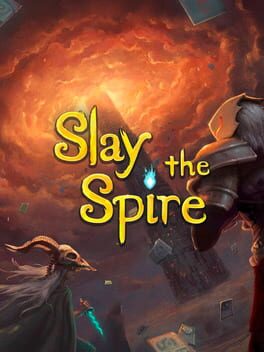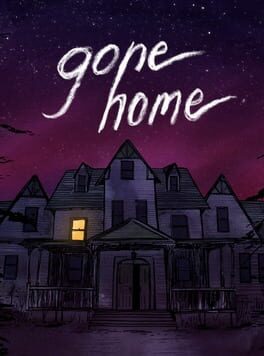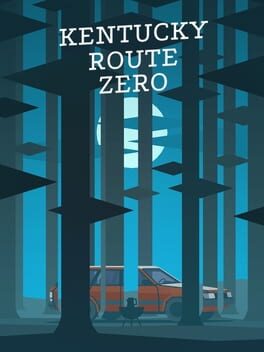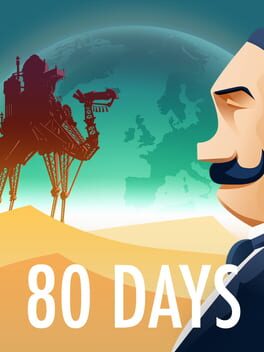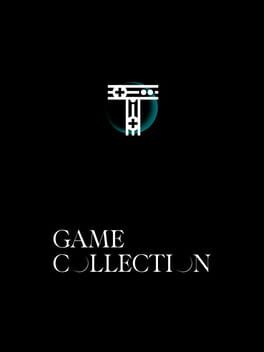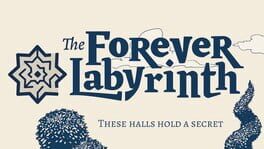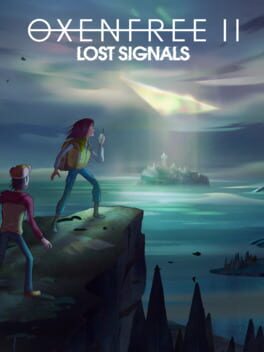MJRParsons
Bio
Nothing here!
Badges

Gamer
Played 250+ games

Liked
Gained 10+ total review likes

GOTY '23
Participated in the 2023 Game of the Year Event

Noticed
Gained 3+ followers

2 Years of Service
Being part of the Backloggd community for 2 years

N00b
Played 100+ games

GOTY '22
Participated in the 2022 Game of the Year Event
Favorite Games
253
Total Games Played
000
Played in 2024
017
Games Backloggd
Recently Reviewed See More
Wade by Optillusion: A game about navigating a barrier. Your character moves from being fully submerged in water to being entirely surrounded by air. (Perhaps it’s the opposite?) In the process, they circumvent obstacles to resolve the transition from one binary state to another, perhaps the transition from life to death. A modest little rumination with a single mechanically annoying moment that’s especially unwelcome given its brevity.
We Are Poems by Fern Goldfarb-Ramallo: An exploration game through abstract space. It ostensibly explores queerness and pleasure, although I can’t say that really registered for me. It’s openly reminiscent of Tale of Tales’ contribution to the previous volume of the Triennale Game Collection, but more elliptical.
Nonno’s Legend by Nina Freeman/Star Maid Games: A game about exerting the power of imagination on the world. You’re a young girl whose grandfather has just given you a magic globe where the land can be rearranged as you see fit. There’s no goal, just an invitation to indulge the childlike fantasy of influencing empirical reality–the shapes of the continents themselves– with your mind. Like the developer’s earlier Cibele, it’s drawn from personal experience and feels true to life.
Mine by Akwasi Bediako Afrane: A game about traversing an environment and learning its dark secrets. The whole game is a corridor, reminiscent in that way only of Half-Life, and it takes place under the ground, reminiscent in that way only of Colossal Cave Adventure. The setting is a mine shaft, though what is being extracted here and for what purpose is not immediately obvious. Very mysterious and compelling.
Contact by Llaura McGee/Dreamfeel: An interactive story about something weird that happened once. A narrator tells the story of a youthful encounter with aliens, but really it’s about queer community. It’s all couched in the aesthetics of zines and early internet culture: points of intersection for marginalized communities and outsider creatives. Very lovely.
We Are Poems by Fern Goldfarb-Ramallo: An exploration game through abstract space. It ostensibly explores queerness and pleasure, although I can’t say that really registered for me. It’s openly reminiscent of Tale of Tales’ contribution to the previous volume of the Triennale Game Collection, but more elliptical.
Nonno’s Legend by Nina Freeman/Star Maid Games: A game about exerting the power of imagination on the world. You’re a young girl whose grandfather has just given you a magic globe where the land can be rearranged as you see fit. There’s no goal, just an invitation to indulge the childlike fantasy of influencing empirical reality–the shapes of the continents themselves– with your mind. Like the developer’s earlier Cibele, it’s drawn from personal experience and feels true to life.
Mine by Akwasi Bediako Afrane: A game about traversing an environment and learning its dark secrets. The whole game is a corridor, reminiscent in that way only of Half-Life, and it takes place under the ground, reminiscent in that way only of Colossal Cave Adventure. The setting is a mine shaft, though what is being extracted here and for what purpose is not immediately obvious. Very mysterious and compelling.
Contact by Llaura McGee/Dreamfeel: An interactive story about something weird that happened once. A narrator tells the story of a youthful encounter with aliens, but really it’s about queer community. It’s all couched in the aesthetics of zines and early internet culture: points of intersection for marginalized communities and outsider creatives. Very lovely.
I feel like this runs counter to the emerging consensus, but I enjoyed Oxenfree II significantly more than its predecessor. Your mileage will vary depending on how deeply the first game resonated with you (it left me a little bit cold). But I found the sequel to be a subtler and more mature story, set in a more beautiful environment, with more compelling secrets to find.
Alas, the biggest problem from the first game returns here, which is that the characters still stammer and ‘um’ their way through every damn line. The script is full of ellipses, filler words and other sources of artificial hesitancy that I imagine were intended to make the dialogue seem more naturalistic, but they don't. Obviously I can’t get into the writers’ heads, but it feels like somebody tried to write the voice performances into the script. I always prefer when writers focus on clarity and concision, and trust the actors to lift the language off the page. A few stretches of Oxenfree II are beautifully written, but this mannerism is so pervasive that it makes the characters hard to listen to. I see that other reviewers have been praising this game’s dialogue. To each their own. I tended to enjoy what the characters said, but not how they said it.
Nevertheless, if you can see (and listen) past these flaws, you’ll find a game that exceeds its predecessor as an explorable environment (at times it feels like a third-person Firewatch), that uses its horror gimmick more judiciously, and tells a lovely, melancholy story about two people who are desperately trying not to waste their precious lives. You need to have played the first game to understand it, and I’m not sure I’d recommend playing that game just for the purpose of getting to this somewhat better sequel. But if you’ve played Oxenfree already, I think this is well worth your time.
Alas, the biggest problem from the first game returns here, which is that the characters still stammer and ‘um’ their way through every damn line. The script is full of ellipses, filler words and other sources of artificial hesitancy that I imagine were intended to make the dialogue seem more naturalistic, but they don't. Obviously I can’t get into the writers’ heads, but it feels like somebody tried to write the voice performances into the script. I always prefer when writers focus on clarity and concision, and trust the actors to lift the language off the page. A few stretches of Oxenfree II are beautifully written, but this mannerism is so pervasive that it makes the characters hard to listen to. I see that other reviewers have been praising this game’s dialogue. To each their own. I tended to enjoy what the characters said, but not how they said it.
Nevertheless, if you can see (and listen) past these flaws, you’ll find a game that exceeds its predecessor as an explorable environment (at times it feels like a third-person Firewatch), that uses its horror gimmick more judiciously, and tells a lovely, melancholy story about two people who are desperately trying not to waste their precious lives. You need to have played the first game to understand it, and I’m not sure I’d recommend playing that game just for the purpose of getting to this somewhat better sequel. But if you’ve played Oxenfree already, I think this is well worth your time.
